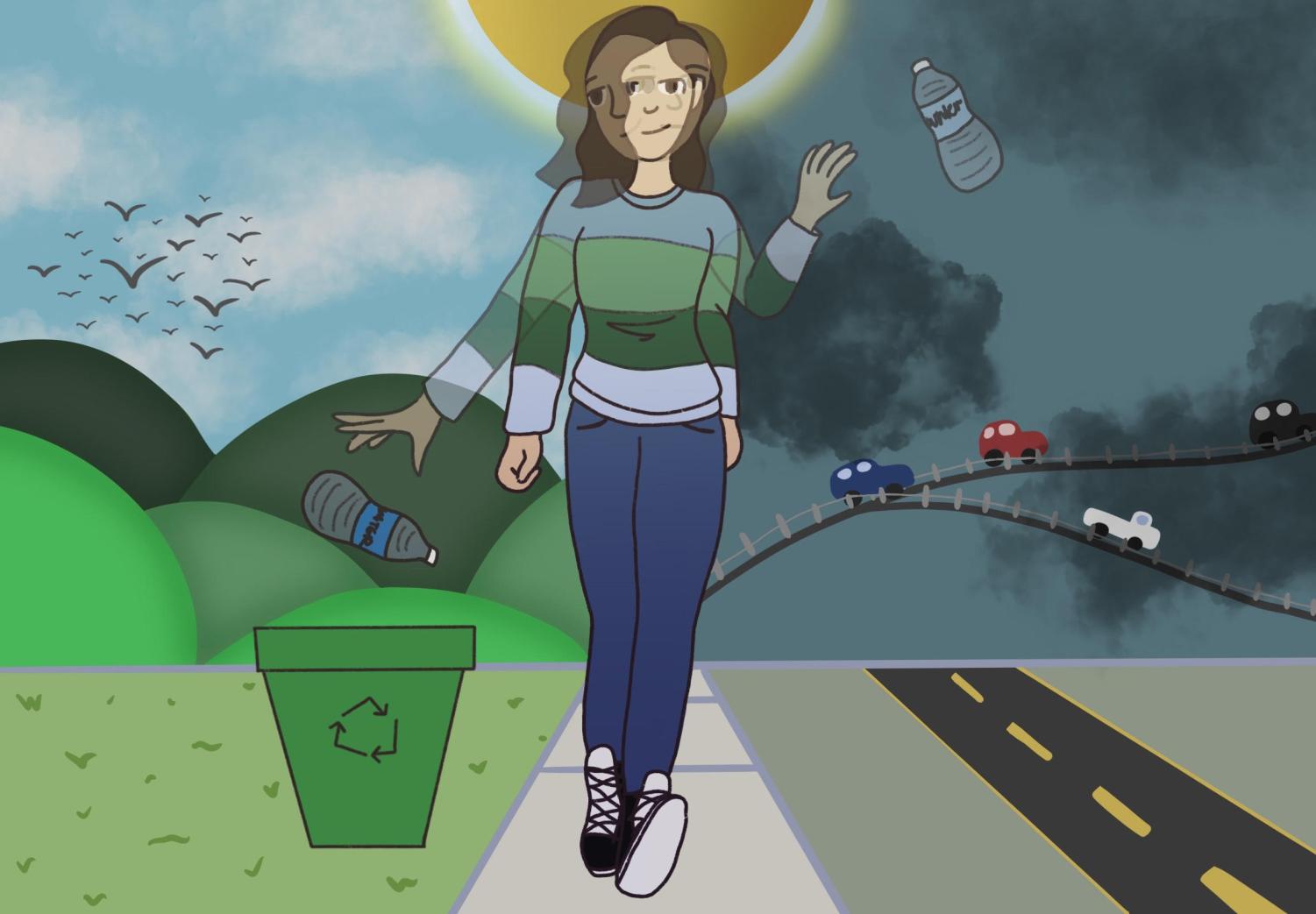A Healthy World is Possible If the FHN Community Strives For it [Editorial]
Published: December 15, 2021

There’s one thing that you quite literally do from the moment you are born. Something that you can sometimes control to calm yourself or exercise better. Breathing. People across the world, the FHN community no different, take advantage of the way breathing is possible. Yet in the future, that ability could be restricted, which is part of why every year the United Nations meets in a Conference of Parties (COP) to discuss the environment and our impact on it. Following the conclusion of that conference this past month it’s important to consider our community, the impact that we have on the world and why we need to push more to achieve a healthy environment for the future.
It’s commonly known that the environment isn’t perfect, after all, the warning of impending doom and gloom has been a concept repeated for generations. But the time to act has finally come up. Our parents and their parents have failed to enact the necessary precautions, therefore we must react. According to the Intergovernmental Panel on Climate Change, there is a forecasted temperature rise of between 2.5 and 10 degrees Fahrenheit. This could lead to damage to the climate “that [is] likely to be significant and increase over time.”
While granted that may be true that we are leading down a path that isn’t ideal, we can still work towards keeping our breathing free of the toxins that have killed off multiple species in the past. There’s no cure. The world that we as a community are going to inherit from our parents will be significantly different from the generation they left behind. However, there is hope in lowering the outcome of the environmental effects. The more that we as a student body can do to prevent carbon emissions and waste, the better we keep our environment for our children. That’s why it’s so critical to look at what we are doing.
There are ample opportunities for students to address their actions. Firstly by being more responsible with distinguishing between recycling and trash. The Environmental Defense Fund explains that Methane has “more than 80 times the warming power of carbon dioxide over the first 20 years.” Landfills are the third largest producer and source of methane. Something as simple as throwing away trash instead of using recyclable materials leads to the heating of our surface. Those same disastrous effects of global warming can be mitigated by using recyclables.
Yet recycling bins are few and far between in classrooms, and a significant percentage of the population still does not recycle at homes. To better the environment and our living conditions in the future we must push for more recycling at home and school, by encouraging our friends and families to recycle.
Carbon emissions don’t just come from landfills though. The biggest producer by far of carbon emissions is the burning of fossil fuels. As our school is being constructed it has reduced the amount of parking spots available to us and forced many students to make difficult decisions about their transportation to school. It’s hard to see the positives in this, but it’s actually small scale adjustments like this that can have a large impact. The slight reduction in drivers makes for more carpooling and more bus riders.
In turn this can actually lead to slightly reduced carbon emissions as there are fewer cars that are using fossil fuels. In future years, we as a community could reduce the amount of parking passes or even encourage the use of carpooling to play our part. If every school across the U.S. followed suit, it could have an incredible impact on our school and society.
Lastly in the Francis Howell North Community it would serve our interests to become more educated on the environment. Classes such as biology or environmental sciences are offered yet not properly utilized. To have a world that we can pass on to our grandkids, and allow them to enter the world just as we did, we must change our outlook now for the betterment of tomorrow. Hopefully that way we can continue doing what we’ve done since birth, breathe.




![FHN Holds Annual Senior Night On Home Turf [Photo Gallery]](https://FHNtoday.com/wp-content/uploads/2024/10/IMG_0837-300x169.jpg)

![Day Three of Basketball Tryouts [Photo Gallery]](https://FHNtoday.com/wp-content/uploads/2024/11/Basketball-tryouts-PJaques-11.6-03-300x200.jpg)
![Knights Varsity Soccer Come Out Short To CBC [Photo Gallery]](https://FHNtoday.com/wp-content/uploads/2024/10/IMG_0391-300x200.jpg)



